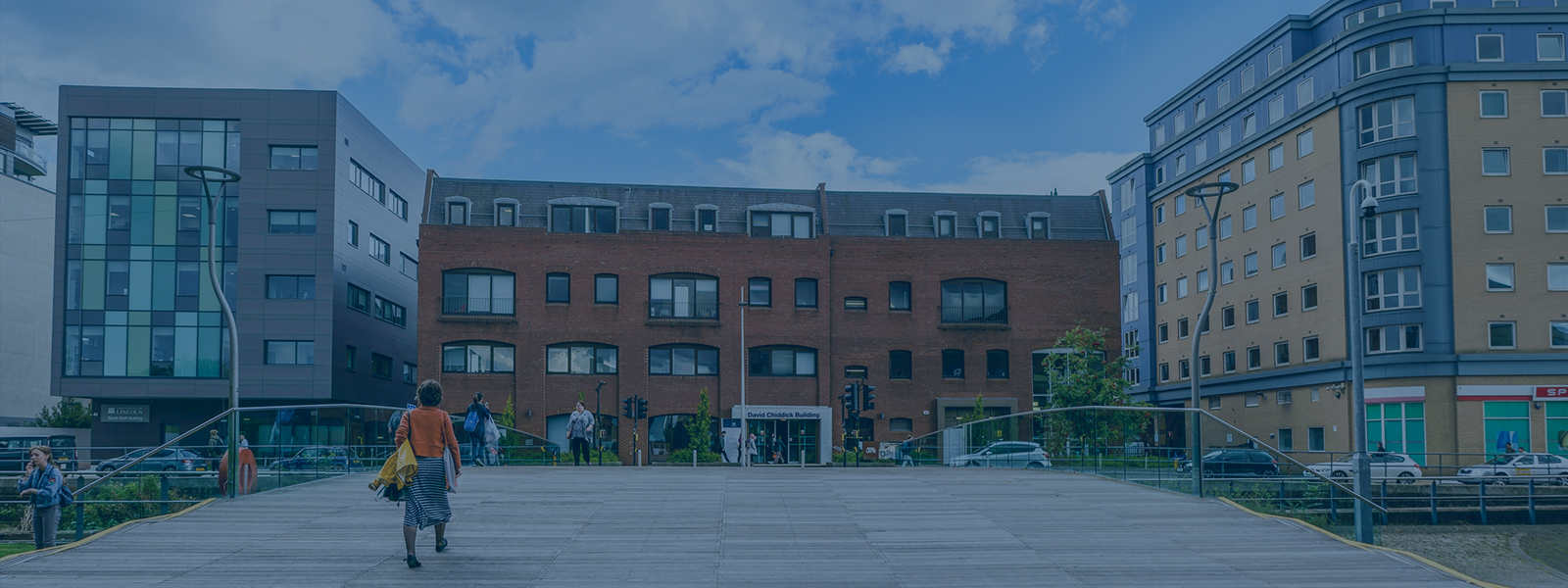The Centre for Organisational Resilience, through interdisciplinary research and evidence-informed practice, addresses the following four key drivers of economic prosperity:
- Board capability, Workforce, Culture and Learning – creating the conceptual foundations and context in which high functioning organisations operate.
- Policy and Foresight developed from Intelligence and Data Analysis– scoping and measuring national business challenges and the appropriate response to them.
- Socio-Political Context – critically identifying what works and disseminating learning that has impact and influence.
- Technology – tackling workforce and organisational issues linked to digital literacy and advances in technology.
The Centre was established as part of Lincoln International Business School, University of Lincoln.
The ten global challenges* identified through research conducted at the University of Lincoln and by its global academic partners, are having an increasing impact on all organisations worldwide. Together with the specific UK challenges, these have by necessity brought the resilience of employers and employees under even greater scrutiny.
The creation of the Centre for Organisational Resilience rests in the context of both these global challenges and pressing national considerations such as:
- The need to develop a National Industrial Strategy designed to drive improvements in GVA (gross value added) in the UK in a post Brexit world.
- The conclusions of the Lord Stevenson and Farmer report “Thriving at Work: A Review of Mental Health and Employers” (2017) which demonstrated the significant cost to individuals, employers and the UK as a State of poor resilience practices (and confirmed in the CIPD’s Health and Wellbeing at Work Report 2019).
- The Kerslake and Augar Reviews of post 18 education which evidenced the need for UK Universities to consider their own sustainability and their role as economic anchor institutions of similar significance to large private sector and public sector employers in the UK.
- The effect of digitisation on planning time horizons for organisations, increasing levels of unprecedented urgency and pressure to respond to change through rapid transformation.
The scale of the challenge and therefore the potential benefit of the Centre is significant. According to the “Thriving at Work” report (2018):
- 300k people leave work prematurely each year with a mental health problem at a cost to employers of £8b.
- Absenteeism costs employers £8b per year.
- Presenteeism costs employers between £17b and £26b.
- In addition the cost of poor mental health to the government range between £24b and £27b (£3b direct cost on the NHS, £10b in benefit costs and between £11b and £14b in lost tax revenues).
There are triple benefits arising from the improved resilience and productivity of the country’s workforce. As well as the financial benefits to the government and employers, the preventive outcomes will result in improved health and social outcomes for England too as well as greater commercial and social innovation that will positively impact on the country’s competitiveness, resilience and sustainability as a G7 nation.
(* Unequal share of wealth, Changing economic powers, Technological disruptions, Planetary health, Civic re-engagement, Living in a global society, Leadership void, Identities and social norms, Migration and mobility, Conflict and war).
Whilst apolitical in principle, the Centre recognises the importance of engaging with Political Leadership so as to help determine policy and set National direction through the LEPs and the country’s industrial strategy. It establishes ongoing links with relevant All Party Parliamentary Groups, Ministers, Members of Parliament and Members of the House of Lords as well as the Local Government Association.
- Acting as a cross-industry governance vehicle for formal collaboration amongst partners.
- Collaborating with Higher Education Institutions throughout England who share in the Centre’s vision, purpose and desire to disseminate learning.
- Brokering collaboration where innovation or good practice exists or can be stimulated.
- Horizon scanning for good practice and to predict future issues/needs.
- Supporting the development of bids for funding or specific cases for private investment,
- Supporting the piloting, testing and sale up of products and services,
- Evaluating the impact of products or services in addressing productivity and resilience challenges, and through focused dissemination and networking generating wide scale adoption of what works
- Value-driven and evidence-informed research, consultancy and executive development fostering impactful leadership in a VUCA world.

Prof Dean Fathers DL
Chair, Centre for Organisational Resilience
Dean leads the development of the Centre and partnership building around its vision and aims. Dean continues to play a role in the NHS as Chair of Nottinghamshire Healthcare NHS Foundation Trust, a Member of the NHS Providers Board and a Member of both the East Midlands Leadership Academy and Talent Boards. Dean is also on the Board of the Greater Lincolnshire Local Enterprise Partnership Board, and a Non-Executive Director of the Parliamentary and Health Service Ombudsman and holds two appointments with private sector health organisations as well as acts as an advisor to several other private sector organisations.
Contact Dean: dfathers@lincoln.ac.uk

Prof Elena Antonacopoulou
Visiting Professor, Centre for Organisational Resilience
Elena is internationally known for her research expertise in the areas of Organisational Learning, Strategic Renewal and Knowledge Management with a focus on the Leadership implications. Elena’s work is published widely and has earned her many research grands, awards and accolades recognising the impact of the ideas developed in advancing innovative learning modes that enhance the impact of management practice. She has been elected and served in multiple leadership roles in the top international professional bodies in the management field and is frequently invited to deliver keynote speeches in international conferences, and deliver workshops that inspire and promote action choices that serve the common good. She is a certified coach from the International Coaching Federation (and practises as an axiologist – enabling ‘true-self’ breakthroughs). She is currently an honorary Visiting Professor at Lincoln International Business School, contributing to the development of the Centre for Organisational Resilience.
Contact Elena: eantonacopoulou@lincoln.ac.uk

